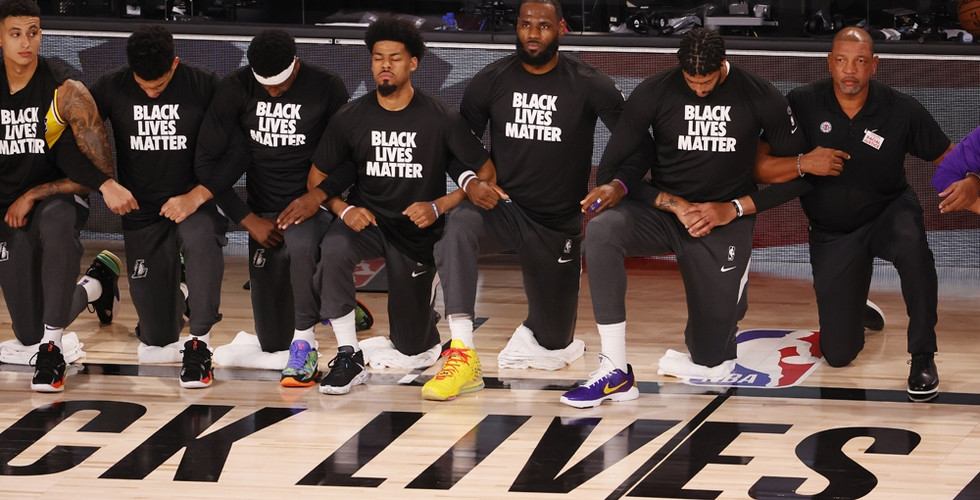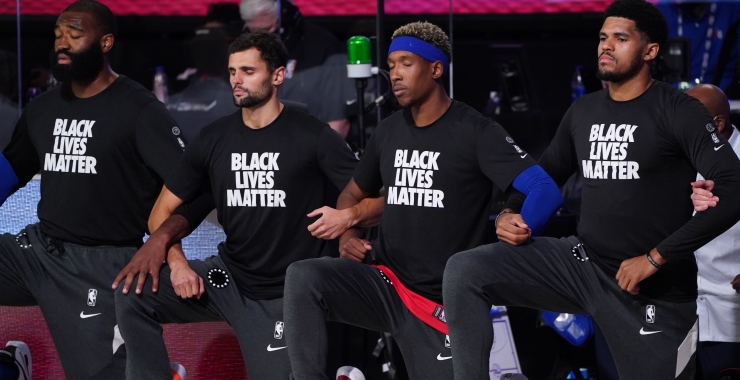
Roland Lazenby is an American sportswriter and educator.
Lazenby has written more than five dozen nonfiction books, mainly about basketball and American football. Some of the books are: Jerry West: The Life and Legend of a Basketball Icon (2010), Michael Jordan: La biografía definitiva (2014), and Showboat: La Biografía definitiva de Kobe Bryant (2016). He has also contributed articles to magazines and newspapers.
His book, "Michael Jordan. The Life" was named Sports Book of the Year 2015 in the Polish Sports Book Awards.
Translaze: We could say that you are on the top, or if not the best book author, in the sports scene. What makes you different from other authors? Why should sports fans choose your books instead of other biographies?
Roland Lazenby: There are so many good and interesting and different authors writing about sports, I couldn’t begin to compare my work with theirs. I’ve been too busy working to concern myself with such a thing. Different writers bring different perspectives. I love studying the top competitive personalities in basketball mostly, and I’ve been fortunate to study some of them up close.
Most of my life I’ve also had a deep interest in the cultural issues that make sports and certain athletes important to us as a culture. I like to write about family and race and business, so many facets of our culture that make sports and athletes important not just for what they achieve but important as a metaphor for many things in our own lives.
Mostly, though, the games and the competition and the people are fun and fascinating. And I have a high appreciation for that.
T: The NBA has changed a lot during the past years. Which book did you enjoy writing the most? Is there any moment or team that you enjoyed the most? Why?
R.L: I wrote Blood On The Horns about what we now call The Last Dance Season. I was there writing about the team in a very exciting time. I knew all the people well and was able to produce a book about that season that has stood the test of time. All those involved talked to me for that book as the season was unfolding in 1997-98. That was immensely challenging, fascinating and fun. Also, it was very sad to watch that great team break up over the course of a championship season.
But I treasure those days, those memories, writing that book.
T: As a biography author, how do you schedule your work to perform research? Any special chronological order or work method that you prefer? How did you deal with the deadlines for the books of Kobe, MJ, and soon Magic Johnson? Is the pandemic “helping” you to work faster or is it a total disadvantage right now?
R.L: The MJ book was driven by the fascination of MJ’s personality. It took three years to write. The Kobe book was written under a 10 month deadline which was both impossible and miserable for many reasons. The Magic book has gone on almost three years during the pandemic. I was fortunate to have been able to spend time interviewing and re-interviewing many sources. The books were all different as I was also at a different point in my life with each book.
T: Players like MJ, Magic Johnson, and Kobe were great players but they all had bad experiences when they were young. Not only have they been considered an inspiration for their great performance, but even for their actions in real life. What makes them different?
R.L: Gosh, you’d have to read my 600-page books to figure that out. Lol. Family mostly. Family makes them somewhat similar but very different. Also time. The various periods in our history that they came along shaped them differently. The past century has brought incredible change to human culture. Their lives and careers reflect that.

T: In 1996 and 1997 you were traveling with the Chicago Bulls to write “Blood on the Horns”. People pointed out that some events like the pizza poisoning were a lie. How close was “The Last Dance documentary” to reality?
R.L: Actually, that season was 1997-98. I began writing about the Bulls and interviewing many people in the franchise starting in 1994.
The pizza poisoning wasn’t a lie. It was just one of the theories posited at the time. My book quoted a top top broadcaster covering that game offering that it might have been a mere hangover. When one of us gets ill from food poisoning or a hangover or whatnot, that’s a mystery even for us. MJ’s case was no different but far more dramatic than when you or I get ill. At the end of the day, there was never any official diagnosis for MJ, just a lot of different ideas about what made him sick.
T: You mentioned that the MJ book was around 11.000 pages and you removed some chapters. Are there any chapters/details that you regret or that are not part of the book?
R.L: The book is actually 700 pages. His family had a lot of sadness with his father’s murder and the book his sister subsequently wrote. I wish I hadn’t had to write about those things. I wish they hadn’t happened. But they did. And I had to write about them.
T: How is your relationship with the players after writing a book? (MJ, Phil; Jerry West, Larry)
R.L: Nobody likes having a biography written about them. It’s like having an autopsy while you’re still alive.
T: At Kobe´s funeral, we all saw Jordan crying and we cried with him. How and when started MJ's and Kobe's friendship?
R.L: That’s a well known story publicly. Privately, I carried a few messages back and forth between them in the early days of their relationship. Kobe told me he wanted MJ to teach him about math. At MJ’s golf tournament, I told him that Kobe wanted to learn about math from him. MJ laughed and said he could teach Kobe that. What Kobe was asking about was the math of being a volume scorer. Things like that. They studied each other from afar. Then got closer.
T: What was the saddest and most difficult moment in Kobe's and MJ's life/book that you wrote about? And the one who inspired you the most?
R.L: I was inspired by all of their lives, by their drive and mindset. The sad moments are obvious. The death of MJ’s father. Kobe’s own passing.
T: You knew Kobe very well. It is a year now after the tragedy. How he would like to be remembered? How should fans remember him?
R.L: That he gave his all. And that’s how many fans remember him and revere him. I think Kobe would be very pleased by the esteem in which he's held today by fans and his fellow competitors and by the players who have followed him. He wanted so badly to be the greatest. And in many ways, he is. I would say, in the least, he is the greatest inspiration to so many, in both men's and women's basketball.
T: Racism has been a topic in NBA for a lot of years, for example, Jordan suffered from Ku Klux Klan. How can America/ the world stand together and solve this issue?
R.L: People solve it every day with their friendship and love and respect for one another. It’s not difficult. You just can’t allow yourself to be drawn in to fear and then hatred that some people would use to manipulate you.
Considering how troubled America's racial history has been, there is a lot of love out there. I feel it every day. So many Americans I know absolutely treasure racial harmony and close personal relationships. I know personally my life has been blessed by so many mentors who happen to be another race. I have learned from all people all my life, And I'm hardly alone in that. Millions and millions and millions of people across the globe feel the same way.
T: You said that Jordan's story is "an economic story," Jordan made a fortune with Nike and Kobe had the chance to collaborate longer with Adidas but he left the company paying 10 million. Did Kobe know about what he could achieve with Adidas? It was all about the shoe design as they said or do you think it was more about building a new Kobe (24) with a better image to the world?
R.L: They were both young, the shoe industry itself was young. They were learning as they went along. Soon enough, they both became experts in the business. That and the way they played made them lots of money, once the business gained clarity. I love that part of the story.
T: Some European teams like Real Madrid want to join the NBA, do you think it could be possible? Would this help to increase the quality and to create a big economic impact or should the NBA only take place in America?
R.L: The NBA has had tremendous success internationally. The late David Stern really made that a point during his long tenure as NBA commissioner. The game is truly global as are the players. All of the leagues will continue to explore what works best for the game. I do think it’s important that other leagues in other countries gain the respect they deserve for their contribution to the growth of the sport. There's great basketball being played everywhere, from the Philippines and Asia to Europe and Africa and South America. It's a special game.
T: When will we be able to buy Magic Johnson's biography?
R.L: I am working on it now. It’s written. I’m just revising. It should be out in 2023.
T: During these days some players were sharing their all-time starting five in history. Would you like to share yours?
R.L: No. It’s subjective. We could debate the greatest players forever and get nowhere. Obviously, Bill Russell did amazing things. I’ll tell you my favorite players. Magic, Bird, MJ, Kobe, Jerry West, LeBron. I have many others but those are my favorite. Shaq always made me smile. Steve Kerr is an amazing human being. Derek Fisher too.
I also have players, such as Joe Dumars and the late Reggie Lewis whom I came to consider good friends as well as coaches such as Tex Winter.
T: To conclude, which advice could you give to young authors who want to achieve what you achieved?
R.L: It’s a business of ideas. I developed ideas for books which allowed me to sell my work to publishers. Over the years, I worked hard to get better and better as a writer. I have been very fortunate to have great teachers, many of whom are other writers. I used to tell my students, the good news is, it’s all about hard work. The bad news is, it’s all about hard work.
You have to work insanely hard and make many sacrifices.
















Comments